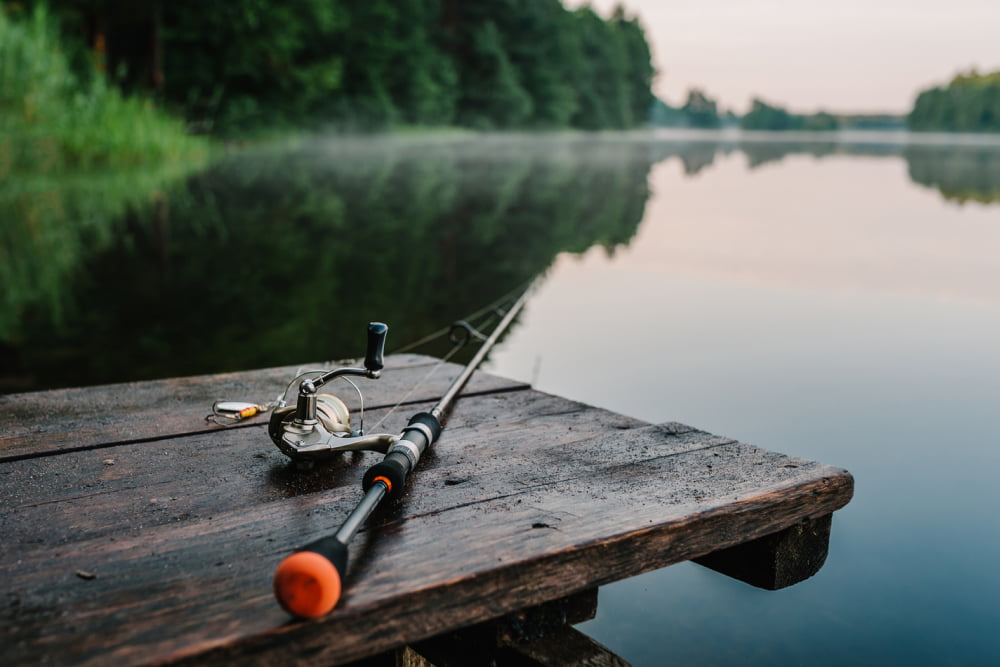Avoid these 10 common fishing mistakes

Fishing, a popular outdoor activity, generally requires a lot of patience and a level of skill to complete the task. For many anglers, catching a fish is a wholesome experience. Whether one’s a beginner or a professional angler, certain factors can lead to the failure or success of a fishing expedition. Many anglers always look forward to a perfect catch every time, but these mistakes can prevent one from having a successful fishing experience.
Lack of preparation
Hopping on a fishing trip without planning and preparing is one of the common mistakes made by beginners as well as pros. Enough research must be done on the fishing spot one plans to go to, which includes the best time to fish and the accessibility of the space. Crowded fishing spots may not be ideal, as it might leave one dissatisfied with the catch. Additionally, one must ensure to pack all the necessary equipment and apparel for the trip.
Ignoring the weather conditions
Forgetting to check the weather conditions is a mistake that can be easily avoided. Before heading out on the water, check the weather conditions. Since the weather can change at any moment, it is important that one continues to monitor the situation while fishing. In addition, it helps to keep a check on the shifts in the wind direction, temperature drops, lightning, and changes in water conditions while one is in the middle of fishing. To check these factors, one can use a marine radio or a smartphone (if a network is available).
Using incorrect rod and reel
The probability of catching a fish will significantly decrease if one uses the wrong reel and rod. It is important to pick the right equipment to improve technique. Several types of reels and rods available in the market are compatible with one’s fishing methods. If one’s new to the activity, consult a professional for insights on equipment.
Using old hooks repeatedly
It makes sense to reuse hooks to save some extra money. However, if one wants to be successful in their fishing expedition, using proper and sharp hooks is essential. The blunt edge of an old hook may attract fish, but it won’t work to keep the fish attached to the line. For the best fishing experience, it is recommended to use newer and sharper hooks.
Not paying attention to the bobber
For those who have just started out with fishing, bobbers can be helpful tools. These help to directly observe the fishing line and check whether a fish is caught on the line. Also, bobbers help to keep the hook up during fishing and prevent the line from snagging too much.
Fishing at the wrong depth
A good catch depends on the depth of the spot where one has chosen. For instance, during warmer weather, the water heats up. In such cases, fishes usually stay within 12 feet of the surface of the water. At such times, fishing in shallower water can bring more success, especially if one is doing it for the first time.
Not checking the drags on the reels
A digital scale or a spring scale can be used to ensure that the drags are properly set. Setting the drag at 25% of the line-breaking strength is recommended.
Keeping too much slack in the line
The excess slack does not help maintain a sufficient connection to the line. So, always reel up the additional slack so that the hookset is firm enough to feel the bites from the fish.
Reeling in too soon
When a fish is caught on the line, many novice anglers start reeling in really quickly. However, it may happen that the fish does not grab onto the fast-moving lure based on the weather conditions. To prevent this situation, it is recommended to reel in slowly to get a good catch.
Forgetting to check the safety gear
Before heading out for the fishing trip, one must check their safety gear thoroughly. Make sure that there are no broken straps, tears, or rips anywhere. Check the first aid kit; stock up on aids and discard expired ones. All the devices for light and sound should be in good working condition with newer batteries. If one is carrying equipment such as fire extinguishers and visual distress signals, these should be thoroughly inspected to avoid any unforeseen situations.

